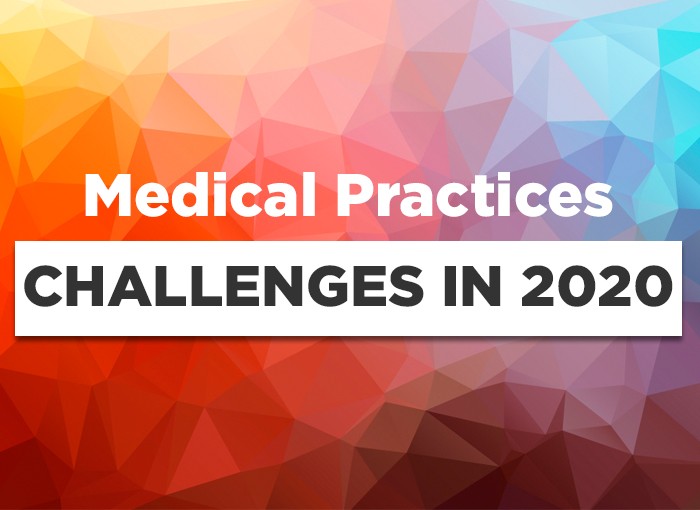Challenges Medical Practices are Expected to Face in 2020
The year 2020 came with the pandemic “COVID-19”, which was followed by a plethora of challenges for medical practices. Below mentioned are the major issues that the medical industry is facing this year:
- Physical and Mental Drain on Medical Practitioners: The “Burnout” issue, which has been declared as a public health crisis in many places, has elevated exponentially among medical professionals in the last few years. The current year only aggravated this issue.
Doctors and other medical professionals are playing a key role in fighting the virus and pacifying the situation. These medical professionals have been contributing a considerable amount of time in patient care and treatment for the country’s benefit, especially during this year of crisis. Working for substantially long hours everyday is not just putting these medical professionals on a major risk of infection but also enervating them physically and mentally. This issue is further exacerbated by the multiple administrative tasks that these medical professionals have to handle in addition to providing patient care. Such energy drainage, especially in such a stressful situation, is taking a huge toll on efficiency as well as the physical and mental health of medical professionals.
- Communication Gap between Doctors and Patients: Due to a high risk of infection and imposed safety rules & regulations amidst the pandemic, it has become difficult to provide the required medical assistance to the patients as before since the pandemic has affected the scheme of things in almost all spheres of our lives. Patients are unable to book in-person appointments with their concerned medical professional. Even though telemedicine has contributed immensely to overcome this issue, there is a wide range of medical assistance that can’t be provided by telemedicine. This issue is taking a heavy toll on the patient’s health. Furthermore, the situation is getting worse with the rise in the number of infectious patients.
- Unavailability of Resources: As the year is progressing, the number of COVID patients is rising substantially. The shortage of resources within hospitals has become increasingly problematic for medical professionals. With a lack of treatment space, equipment, safety kits and hindrance in logistics movement, it is becoming an arduous task for medical professionals to contain the pandemic outbreak.
- Providing Healthcare Access to Needy: The pandemic and other associated health problems have impacted the people of lower income class severely. Providing required medical assistance to the part of society with lower income and with no insurance coverage has always been a problem for the medical practitioners. With the pandemic outbreak, it has become a much bigger issue to provide access to medicine, vaccines, and treatment to the middle class and lower class for the government and medical professionals likewise.
- Challenges in Revenue Cycle Management : Managing administrative work as well as billing and collection costs a great amount of time for medical practitioners. Lack of knowledge of rules and regulation is the major cause of claim rejections.
With the pandemic outbreak in 2020, the government has made numerous changes in rules and regulations regarding medical billing. It is important to be up to date with the changing policies as even the slightest mistakes can cause restrictive cash flow for medical professionals. As most of the medical practitioners are outsourcing medical billing companies for finance handling, it is important to delegate these responsibilities to reliable hands who proactively deal with market changes and keep themselves acquainted with each and every norm.
- Declination in Revenue: The biggest challenge that medical practitioners are dealing with in the year 2020 is the drastic decline in their revenue. Approximately half of the medical healthcare practices in America are small businesses that rely on patient footfall for revenue generation. Because of the COVID outbreak, patients are unable to visit the doctors for medical assistance because of the restriction and the risk of infection. The doctors are also finding it difficult to manage in-person appointments along with practicing social distancing. These factors have caused a major decline in the patient’s footfall in clinics and hospitals.
Pediatricians have to call the parents and remind them to take appointments for their child’s check-up and immunization. Parents are hesitant to take their infants for vaccination, those who fear can further lead to growth in disease vulnerability amongst children.
Furthermore, many medical practitioners are not eligible for Medicare advanced or accelerated payments and therefore are unable to benefit from the HHS financial relief policies.




